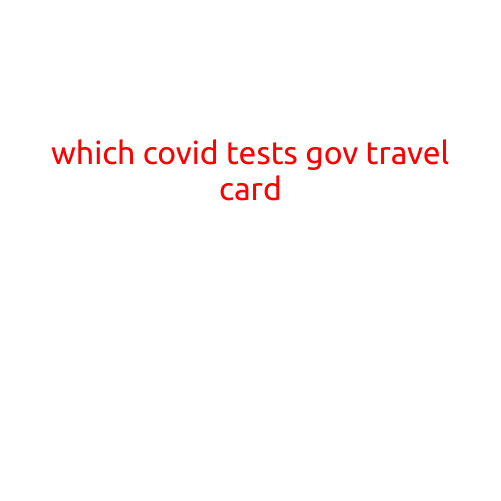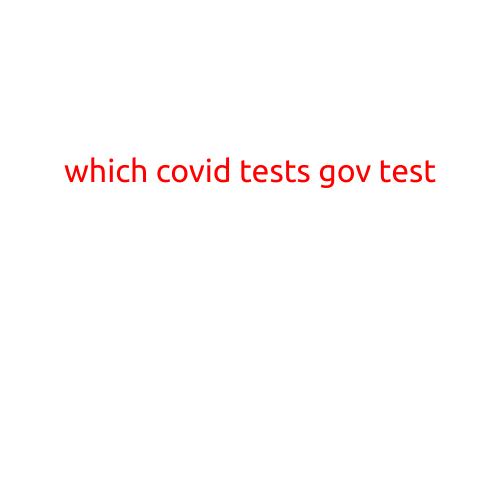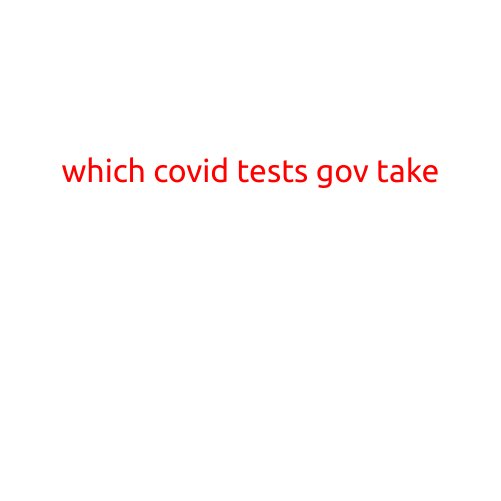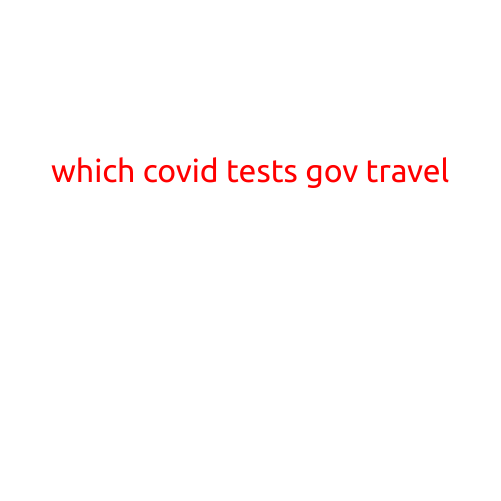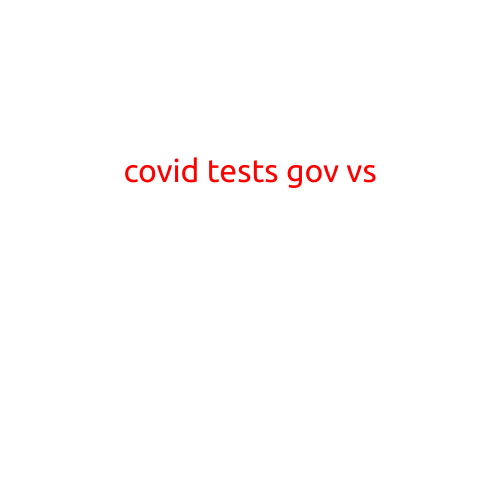
COVID Tests: Gov vs.
The COVID-19 pandemic has brought about a new era of vigilance, with testing being a crucial tool in the fight against the virus. With numerous COVID test options available, the question on everyone’s mind is: which one is the most reliable? In this article, we’ll delve into the differences between government-approved tests and private COVID tests, to help you make an informed decision.
Government-Approved Tests:
The US Food and Drug Administration (FDA) has approved several COVID tests, including PCR (polymerase chain reaction) and antigen tests. These tests are widely available and can be found at healthcare providers, hospitals, and community testing sites. Government-approved tests are subject to rigorous testing and evaluation, ensuring that they meet high standards of accuracy and reliability.
Pros:
- High accuracy: Government-approved tests are designed to detect even small amounts of the virus, providing accurate results.
- Wide availability: These tests are widely available, making it easy to find a testing location near you.
- Insured coverage: Most government-approved tests are covered by insurance, reducing out-of-pocket costs.
- Regulatory oversight: Government-approved tests are subject to strict regulations, ensuring that they are safe and effective.
Cons:
- Limited options: Government-approved tests may not offer the same range of options as private tests.
- Long wait times: You may experience long wait times at testing locations, particularly during peak periods.
- Cost: Although insurance may cover some costs, you may still be responsible for some out-of-pocket expenses.
Private COVID Tests:
Private COVID tests, also known as over-the-counter (OTC) tests, are approved by the FDA but are not subject to the same rigorous testing and regulation as government-approved tests. These tests are available at pharmacies, retail stores, and online.
Pros:
- Convenience: Private COVID tests are often faster and more convenient than government-approved tests, with results available in as little as 15 minutes.
- Discreet: OTC tests are ideal for those who prefer to keep their test results private.
- Cost-effective: Private COVID tests are often more affordable than government-approved tests, with prices ranging from \(5 to \)50.
- Wide range of options: Private COVID tests offer a range of options, including rapid antigen tests, PCR tests, and at-home kits.
Cons:
- Accuracy: Private COVID tests may not be as accurate as government-approved tests, particularly in detecting small amounts of the virus.
- Limited regulation: Private COVID tests are subject to less stringent regulation than government-approved tests, raising concerns about safety and effectiveness.
- Insurance coverage: Private COVID tests are not typically covered by insurance, leaving you responsible for the full cost.
- Results reliability: Private COVID tests may not provide reliable results, particularly if the test is expired, damaged, or not performed correctly.
Conclusion:
When it comes to COVID testing, it’s essential to weigh the pros and cons of government-approved tests and private COVID tests. Government-approved tests offer high accuracy, wide availability, and insured coverage, but may have limited options and longer wait times. Private COVID tests offer convenience, discretion, and affordability, but may have accuracy concerns, limited regulation, and no insurance coverage.
Ultimately, the choice between government-approved tests and private COVID tests depends on your individual needs and circumstances. If you require high accuracy and are willing to wait, a government-approved test may be the best option. However, if you need a quick, affordable, and discreet test, a private COVID test may be the way to go.
Remember:
- Always follow the manufacturer’s instructions for private COVID tests.
- Consult with a healthcare professional if you’re unsure about which test to use or have questions about your test results.
- Prioritize your health and safety by taking necessary precautions to prevent the spread of COVID-19.
Stay informed, stay safe, and stay healthy!


